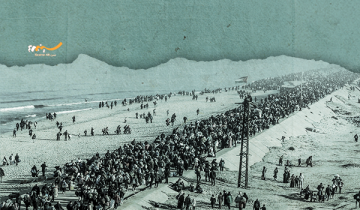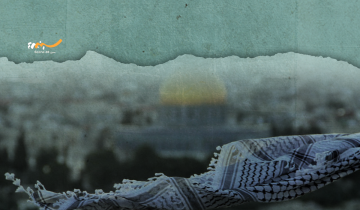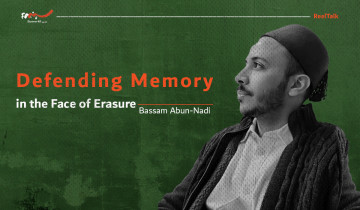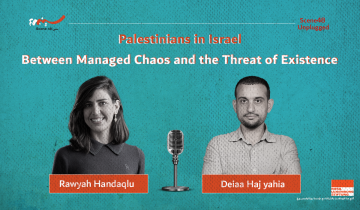“I Wish He Had Killed Me Instead”
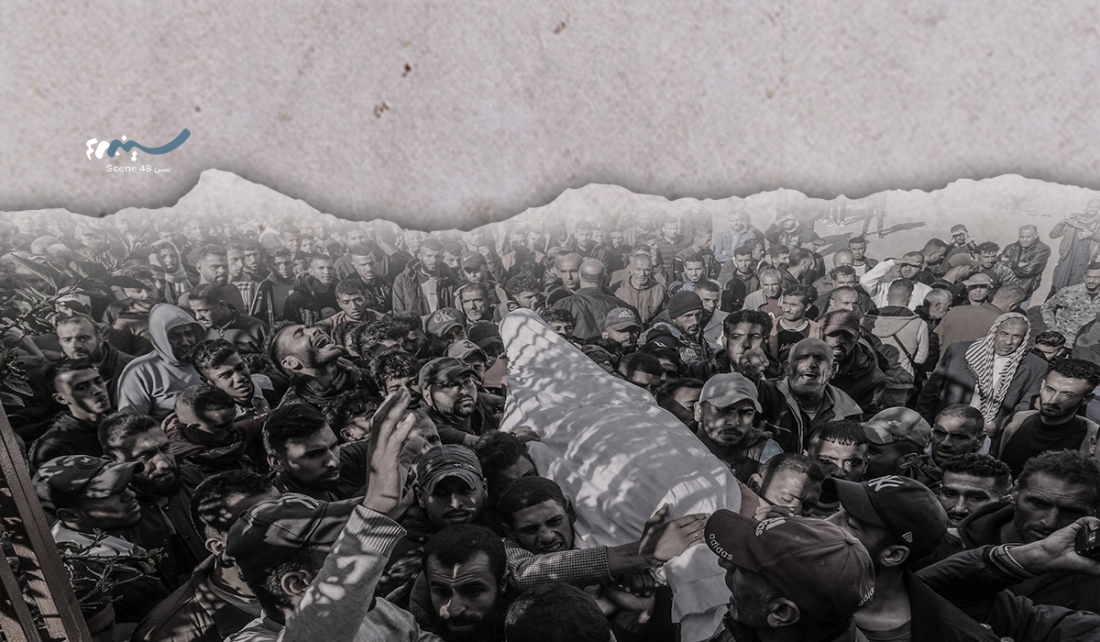
When I saw he was going to shoot, with many of my family behind me, I was afraid for them. I told that cowardly criminal to shoot me instead more than once but he fired at my cousin, my brother, my beloved Odeh, the peaceful man. I wish he had killed me instead. Losing Odeh is a loss for humanity.
I remember that day clearly. An occupation bulldozer entered our private land. I heard shouting and chaos. I ran to the site and saw it for myself: the bulldozer was destroying our trees and fence. My brother, along with some international activists, was trying to stop it peacefully. But the settler driving kept going, ignoring everyone. My brother Ahmad stood in front of it, but the hateful settler struck him with a stick and the bulldozer’s mechanical arm, hitting his head and shoulder.
My brother collapsed, unconscious. I pulled him away from the bulldozer, and we saved him. I kept filming. The driver tried to run me over several times; I escaped only at the last moment. Another settler, Yinon, stood opposite, watching. The bulldozer left and headed to the settlement. I pointed my camera at Yinon. He pulled out a pistol, eyes full of malice. Moments later, he fired and killed Odeh.
We ran to Odeh, found him in a pool of blood. The settler walked casually through the village, joined by settlers from the Karmiel settlement supporting him. We tried to save Odeh. We called ambulance and occupation police, but they arrived late. The Israeli ambulance blocked the Palestinian ambulance from taking him.
The army arrived, firing tear gas and sound grenades, detaining us all. They took Odeh away. We hoped he might survive. Meanwhile, police brought Yinon to identify family members; the army arrested them.
Soon, the news came: Odeh had been martyred. It was one of the hardest moments, filled with tears and cries. But the occupation didn’t stop at killing Odeh. They released Yinon, who returned next day to provoke the village and wound hearts. Occupation forces arrested nineteen family members, including me, brothers and cousins of the martyr. We spent about ten days in Israeli prisons, enduring torture and humiliation, imprisoned without clear charges.
This is the occupation, violating international laws, stripping us of our humanity. The killer walks free while the victim’s family suffer. In prison, I had a high fever and repeatedly asked for the doctor, but they denied me treatment.
This is not our first loss, not likely our last. Before Odeh, we lost my uncle, peaceful sheikh Suleiman Alhathaleen, who also gave his life for our land in Umm al-Kheir. Odeh was not just my cousin; he was my sister’s husband, childhood companion, secret keeper, and brother. He was a father to three children: Watan, Muhammad, and Kinan. He had the kindest, most compassionate heart. He served our community, strong, courageous, peaceful yet steadfast in demanding our rights. He defended our land until he fell a martyr.
Life takes my loved ones, and my village offers its best men as martyrs. Abu Watan always worried about me because I was a “troublemaker,” but he was the one who left. I see the whole world mourning him, friends from everywhere at the tent. He had a big heart and years of honest work. He cared for everyone, left a mark on every heart. That’s not easy. He knew how to give people what they needed, how to make them feel seen. I learned much from him; his legacy lives deep in my heart.
I am relieved his body rests in the village he loved, though the occupation held it for over ten days and tried to impose cruel conditions: that he be buried outside his village, without public participation, and at night. We refused. Odeh was no criminal to be buried in shame. He was our hero, our martyr, who gave his life for land and people.
Since birth, my village of Umm al-Kheir has faced occupation in every possible form. We have lost martyrs, had homes demolished repeatedly, and been denied basic rights—water, electricity, building permits, infrastructure. Our village lies adjacent to illegal Israeli settlements, constantly exposed to violence and clashes with settlers and the occupation forces.
Though Israeli courts recognized our land privately owned, settlers have never stopped trying to force us out, seeking to cleanse the land for expanding settlements. My village is now surrounded by settlements. We have lost livelihoods; herds and our fields blocked, sheep stolen, trees hacked by settlers.
The occupation claims democracy, but for Palestinians, it is a hollow lie. Settlements and chicken farms surround us; water and electricity lines run through our land to serve them, but we, the owners, are forbidden use even on our own private property.
Yet Umm al-Kheir remains my beloved village, the village of martyrs: from my uncle, sheikh Suleiman Alhathaleen, to my cousin, teacher Odeh Alhathaleen. It has borne fierce, unyielding battles of steadfastness, nor surrendering or bowing to occupation. The heavy price has deepened our attachment and our love for this land.
A village deprived of basic life conditions, yet rich in the determination of a people fighting for their rights. We send this message to the world: we remain steadfast, resisting on our land. We will not abandon it, even at the cost of all our lives.
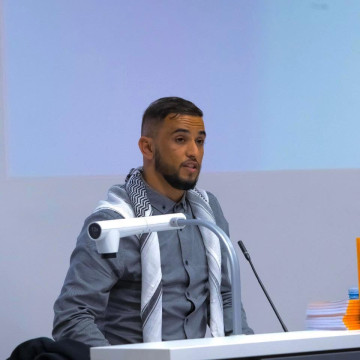
Alaa Alhathaleen
A Palestinian activist from the village of Umm al-Kheir in Masafer Yatta, a physical therapy specialist, and a football player.
